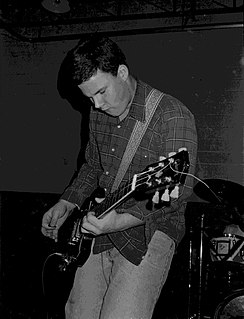A Quote by Charlie Munger
Part of [having uncommon sense] is being able to tune out folly, as opposed to recognizing wisdom. If you bat away many things, you don't clutter yourself.
Related Quotes
I'm really excited to act again because when I started out, there was an innocent sort of perception of the world that was coming though me, and I think now through a lot of experience and life and understanding, I've come full circle to having a purer response to things. So my craft will be really interesting to work from this place because I think acting is about being in tune with yourself - or maybe the struggle to be in tune with yourself.
When the ball is over the middle of the plate, the batter is hitting it with the sweet part of the bat. When it's inside, he's hitting it with the part of the bat from the handle to the trademark. When it's outside, he's hitting it with the end of the bat. You've got to keep the ball away from the sweet part of the bat. To do that, the pitcher has to move the hitter off the plate.
Wisdom is not finally tested in schools, Wisdom cannot be pass'd from one having it to another not having it, Wisdom is of the soul, is not susceptible of proof, is its own proof, Applies to all stages and objects and qualities and is content, Is the certainty of the reality and immortality of things, and the excellence of things; Something there is in the float of the sight of things that provokes it out of the soul.
Chance in music doesn't have to involve the I Ching or rolling dice or throwing yarrow stalks. It can involve an out-of-tune guitar, or other impossible-to-replicate moments of awkwardness - even more so than an awkward, out-of-tune live performance, because there's something incredible about the way that an out-of-tune guitar becomes part of the song on a record. I won't be precious and say it's part of the composition - that's nonsensica l - but chance occurrences are so crucial to what's distinctive. It's the fingerprints all over so many of these recordings.
It may be expecting too much to expect most intellectuals to have common sense, when their whole life is based on their being uncommon -- that is, saying things that are different from what everyone else is saying. There is only so much genuine originality in anyone. After that, being uncommon means indulging in pointless eccentricities or clever attempts to mock or shock.
No disrespect to people that don't use music theory or don't know it. It does help to be able to figure out what key a song is in, even though with your scales you can figure it out so you can set your Auto-Tune right. So many songs with Auto-Tune are off or have the wrong note playing on the 808. And they pass it off as being hood.
Incredulity is not wisdom, but the worst kind of folly. It is folly, because it causes ignorance and mistake, with all the consequents of these; and it is very bad, as being accompanied with disingenuity, obstinacy, rudeness, uncharitableness, and the like bad dispositions; from which credulity itself, the other extreme sort of folly, is exempt.



































